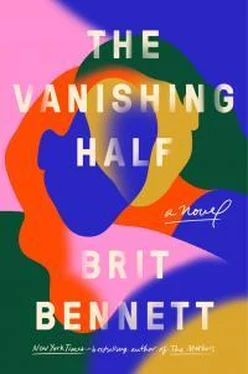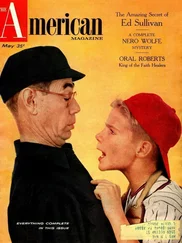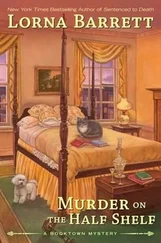At the wake, the twins wore matching black dresses with full slips that itched their legs. Days earlier, Bernice LeGros, the seamstress, had come by to pay her respects and found Adele Vignes trying to darn a pair of Leon’s church pants for his burial. Her hands were shaking, so Bernice took the needle and patched up the pants herself. She didn’t know how Adele would handle this on her own. Decuirs were used to soft things, to long, easy lives. The twins didn’t even have funeral dresses. The next morning, Bernice carried over a bolt of black fabric and knelt in the living room with her tape measure. She still couldn’t tell the twins apart and felt too embarrassed to ask, so she gave simple commands like “You, hand me them scissors” or “Stand up straight, honey.” She told the fidgety twin, “Stop wigglin, girl, or you gonna get sticked,” and the other twin grabbed her hand until she stilled. Unnerving, Bernice thought, glancing between the girls. Like sewing a dress for one person split into two bodies.
After the burial, Bernice gathered in Adele’s crowded living room, admiring her handiwork as the twins scampered past. The fidgety twin, who she would later learn was Desiree, pulled her sister’s hand as they wove past the grown folks who huddled and whispered. Leon couldn’t have written that note—the white men must have been angered over something else and who could understand their rages? Willie Lee heard that the white men were angry that Leon stole their business by underbidding them. But how could you shoot a man for accepting less than what you asked for?
“White folks kill you if you want too much, kill you if you want too little.” Willie Lee shook his head, packing tobacco into his pipe. “You gotta follow they rules but they change ’em when they feel. Devilish, you ask me.”
In the bedroom, the twins sat, legs swinging over the mattress edge, and pinched at a piece of pound cake.
“But what did Daddy do?” Stella kept asking.
Desiree sighed, for the first time feeling the burden of having to supply answers. Oldest was oldest, even if by only seven minutes.
“Like Willie Lee say. He do his job too good.”
“But that don’t make sense.”
“Don’t have to. It’s white folks.”
As the years passed, their father would only come to her in flashes, like when she fingered a denim shirt and felt small again, pressed against the rough fabric spanning her father’s chest. You were supposed to be safe in Mallard—that strange, separate town—hidden amongst your own. But even here, where nobody married dark, you were still colored and that meant that white men could kill you for refusing to die. The Vignes twins were reminders of this, tiny girls in funeral dresses who grew up without a daddy because white men decided that it would be so.
Then they grew older and just became girls, striking in both their sameness and differences. Soon it became laughable that there had ever been a time when no one could tell the twins apart. Desiree, always restless, as if her foot had been nailed to the ground and she couldn’t stop yanking it; Stella, so calm that even Sal Delafosse’s ornery horse never bucked around her. Desiree starring in the school play once, nearly twice if the Fontenots hadn’t bribed the principal; Stella, whip smart, who would go to college if her mother could afford it. Desiree and Stella, Mallard’s girls. As they grew, they no longer seemed like one body split in two, but two bodies poured into one, each pulling it her own way.
—
THE MORNING AFTER one of her lost daughters returned, Adele Vignes woke early to make coffee. She’d barely slept the night before. Fourteen years living alone and anything besides silence sounded foreign. She’d jolted awake at every creaking floorboard, every rustled cover, every breath. Now she shuffled across the kitchen, tightening the belt of her housecoat. A breeze floated in through the front door—Desiree leaning on the porch rail, smoke trailing past her head. She always stood like that, one leg behind the other like an egret. Or was that Stella? In her memories, the girls had gotten mixed up, their details switching places until they overlapped into a single loss. A pair. She was supposed to have a pair. And now that one had returned, the loss of the other felt sharp and new.
She slid the pot of water onto the stove and turned to find the dark child standing in the doorway.
“Goodness!” she said. “You about gave me a heart attack.”
“I’m sorry,” the girl whispered. She was quiet. Why was she so quiet? “Can I have some water?”
“May I have,” Adele said, but she filled the cup anyway. She leaned against the counter, watching the girl drink, searching her face for anything that reminded her of her daughters. But she could only see the child’s evil daddy. Hadn’t she told Desiree that a dark man would be no good to her? Hadn’t she tried to warn her all her life? A dark man would trample her beauty. He’d love it at first but like anything he desired and could never attain, he would soon grow to resent it. Now he was punishing her for it.
The child set her empty cup on the counter. She looked dazed, as if she’d woken up in a foreign country. Her granddaughter. Lord, she had a granddaughter. The word seemed funny even in her own head.
“Why don’t you go on and play?” Adele said. “I’ll fix us some breakfast.”
“I didn’t bring nothin with me,” the girl said, probably thinking of all the toys she’d left behind. City toys, like choo choo trains driven by real motors or plastic dolls with human hair. Still, Adele went into the twins’ room, freezing a second at the sight of the mussed bed—Desiree slept on her old side—before opening the musty closet. In a cardboard box near the back, she found a corncob doll that Stella had made Desiree. The girl hesitated—the doll must have looked monstrous compared to her store-bought ones—but she carried Stella’s doll carefully into the living room.
A pair. Adele used to have a pair. Healthy twin girls, her first pregnancy at that. She’d given birth in her bedroom, the snow falling so suddenly, she wasn’t sure that the midwife would make it in time. When she arrived, Madame Theroux told her how fortunate she was. There hadn’t been twins in either family line for three generations. If you’d been blessed with twins, the midwife told her, you had to serve the Marassa, the sacred twins who united heaven and earth. They were powerful but jealous child gods. You had to worship both equally—leave two candies on your altar, two sodas, two dolls. Adele, catechized at St. Catherine’s, knew that she should have been scandalized, listening to Madame Theroux talking about her heathen religion at the birth of her children, but the stories distracted her from the pain. Then Desiree appeared, and seven minutes later Stella, and she held a girl in each arm, wrinkled and pink and needing nothing but her.
After the twins were born, Adele never built an altar. But later, after her girls disappeared, she wondered if she’d been arrogant. Maybe she should have just built the altar, no matter how foolish it sounded. Maybe then her daughters would have stayed. Or maybe, she alone was to blame. Maybe she’d failed to love the twins equally and that chased them away. She’d always been hardest on Desiree, who was most like her father, confident that as long as she willed good things to happen, nothing could harm her. You had to curb a willful child. If she hadn’t loved Desiree, she would have abandoned her to her own stubbornness. But then Desiree felt hated and Stella felt ignored. That was the problem: you could never love two people the exact same way. Her blessing had been doomed from the beginning, her girls as impossible to please as jealous gods.
Читать дальше












